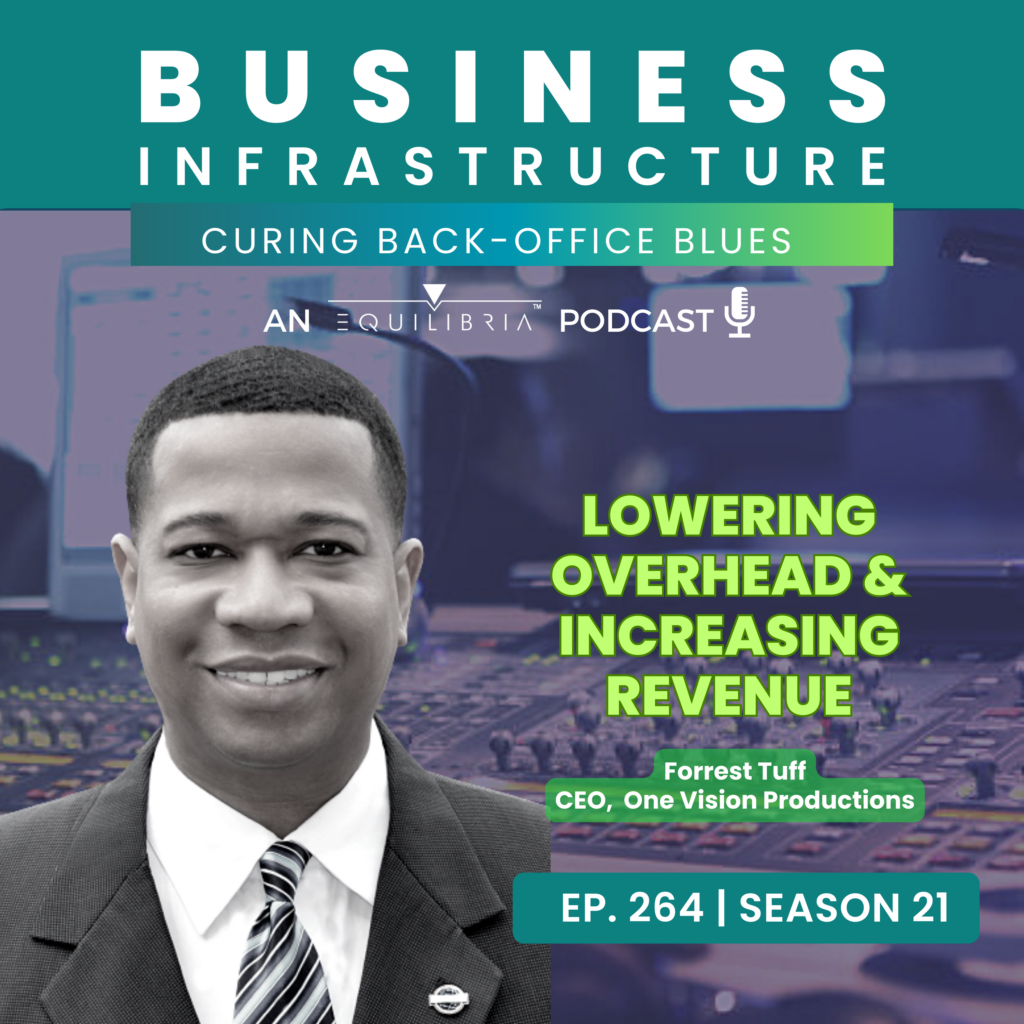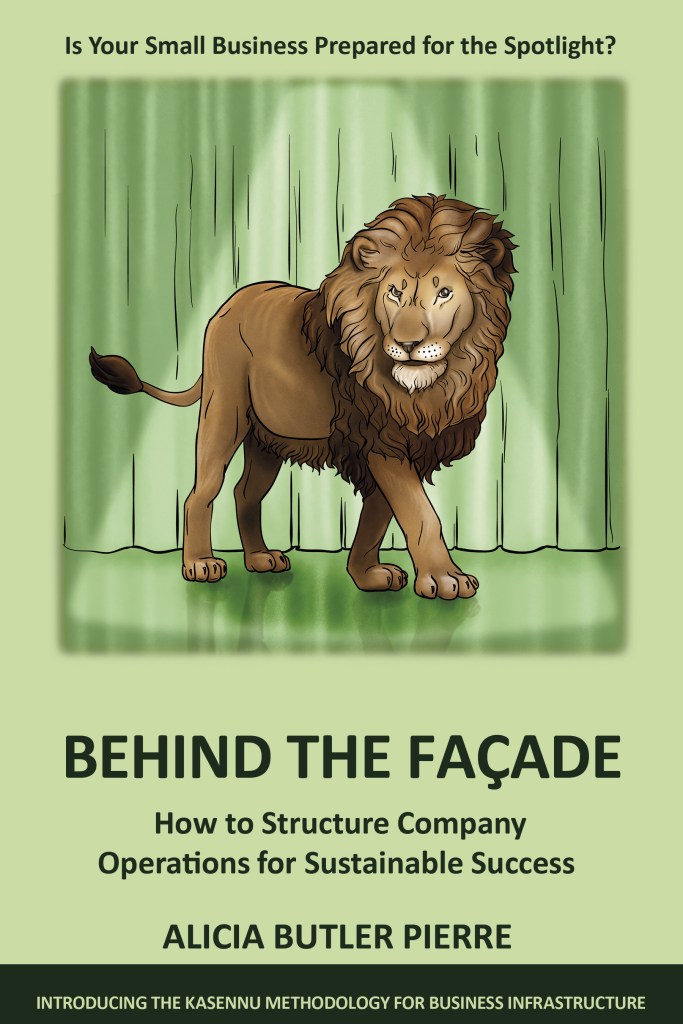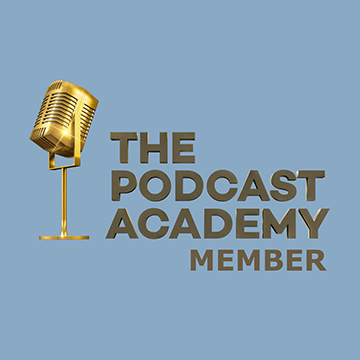Transcript
Hi, how have you been since the last time you visited? Well, let’s not waste valuable time. Let’s head on over to the podcasting vault so that you can listen to this next episode. You know how they say there’s something to learn from everyone? Well, this episode is no exception. Prepare to be enlightened by what this filmmaker has to say about expanding your team without increasing overhead.
This podcast is brought to you by Equilibria, Inc. We design business infrastructure that frees you from the chaos of fast growth, scales your operations, and increases the value of your business.

Welcome back to Season 21 of the Business Infrastructure podcast. On this show we share operational tips, strategies, and tactics to help you cure any back-office blues you might be experiencing. I’m Alicia Butler Pierre and this season we’ve decided to remaster some of our most talked about episodes. These are older episodes that we think deserve a refresh by using our show’s new format.
One such episode is the one you’re about to hear. When this episode originally aired in 2019, it generated a lot of buzz not just because of who the esteemed guest is, but because of his down-to-earth and relatable message about something we can all benefit from.
This is Episode 264 – Lowering Overhead and Increasing Revenue with Forrest Tuff
Forrest Tuff is a man of many talents. A former basketball athlete, he now competes on a different court – the entrepreneurial one. And let me tell you, as a person who has watched him over the years, trust me when I tell you that Forrest plays any game to win! I thought a good starting point for our interview was to welcome him, ask him how he’s doing, and ask him to explain what he does as a filmpreneur and CEO at One Vision Productions.
Doing great. Thank you for having me.
At One Vision Productions, we specialize in video production.
We work with corporations; we work with government entities. We’ve done work in the film industry, and we also have incorporated aerial drone services. Our job, in a sense, is to make every customer look their best. That’s what we do.

And making every customer look their best requires resources. Knowing this, it begs the question, at what point did Forrest realize that overhead was an issue?
When the check and balance doesn’t work out, that’s when you recognize, okay, we’ve got to make some changes. When I started my business 15 years ago, I had the concept that I wanted to be the brick and mortar because I felt that was an established look for a business. I wanted to have my staff on call where I could see them, and we could make everything happen from this facility. But as the landscape began to change, I actually recognized that I was pigeonholing my mindset into what I viewed a successful
business was.
And the problem was the money was not adding up to the expenses. And to me, I had to redefine what success was. And that was when I realized I needed to change how I did business.
With that being said, we started to look at other alternatives. And the first thing I had to look at was, where is the money being spent. And the facility was the biggest thing we were spending money on. So, it took a lot to get to this point. But to call yourself the CEO, you have to make executive decisions, right?
You have to make decisions that may not look the part, but they’re the best part for the sustainability of your company. So, with that being said, we started to look into virtual office space and shared workspace, and those things provided some flexibility. That was one thing that provided flexibility in order to purchase more equipment for our company so that we were able to meet jobs at a quicker demand. And also, it immediately cut down a lot of finances that we were spending and not getting the benefit from.
Once Forrest began trimming the fat of unnecessary expenses, he shifted his focus to restructuring his company’s business infrastructure. Listen as he explains how he evaluated and reorganized each element of business infrastructure: people, processes, and tools.
One of the things is I started to hire a lot more 1099 contractors.
That freed up the amount of money we were spending on staff, making sure that I was getting the optimal use for everyone that was doing a job. Because the nature of my business is contract-oriented, there’s not a lot of prep outside of the initial people who are brainstorming on the project. So, it’s almost project-based initially. With that, we brought in a lot more 1099 contractors and it gave us a lot more flexibility even in our hours of work.

Whereas before we were the traditional nine to five. Now we’re the twelve to twelve. We did what we had to do to be competitive. And that was one of the other things we had to focus on. How can we be competitive and find our place in this market?
Because there are a lot of people offering the service. So, what are we going to do that separates us now?
When Forrest honestly answered that question, he realized something else.
It wasn’t always about cutting back, but it was also about spending money on things that would make us more accessible. I remember when we first got on with the Woodruff Art Center, they had a very good project, but they needed a 24-hour turnaround.
It’s one of those things where if you can do it, it’s great. And we were in a position to do a major project. I’m talking about a major project.
And when I say major, it was a video for the Woodruff Art Center’s five-year strategic plan. And we were able to do a 24-hour turnaround because of the resources we had available and the training we had. And the company was really impressed with us. They did a whole big deal. And we’ve been a preferred vendor with them since 2011.
That’s an example of how we were able to create an opportunity by changing the way we used our pay structure.
Now, I heard you mention the word, training. So, when you hire these 1099 contractors, I’m assuming you have procedures and guidelines that you’ve documented on how to do certain things and what the expectations are when performing certain work. Is that true?
Yes, we call it the One Vision Productions Way. There are a lot of contractors that work for different people. But I try to create a preferred contractor’s list. It’s like we create a list of people that we know understand what we’re trying to do in the marketplace and how we like to do business, and they get first right of refusal. It puts you in the headspace that if you’re actually willing to adhere to this training, you know that as we have work, we’ll keep you in the loop.
So that’s one way to kind of give a contractor your company policy, to let them know, “Hey, listen, this is the amount of work we did last year, and we’re going to continue to get this work, and we would like you to be a part of this team. We know that you’ll work with other people, but that’s where we have the numbers, where we have more than five to six or seven contractors that we work with to make sure that we have people available.”
This is a little off-topic, but I’m also curious. One of the downsides, I guess you could say, to working with 1099 contractors is that sometimes you might need something done ASAP and those people may not be available.
Exactly.
Do you run into that issue a lot?
I have not.
Forrest attributes this to the list of vetted independent contractors he has. If you’re unfamiliar with the term, 1099, it refers to a tax form here in the U.S. that must be completed and provided to anyone who does work for you over a certain dollar amount within a year and is not an employee of your company. The first right of refusal is when you give someone an opportunity to do work before offering that opportunity to anyone else. When it comes to Forrest’s roster of talented independent contractors, he wanted to be clear on one thing.
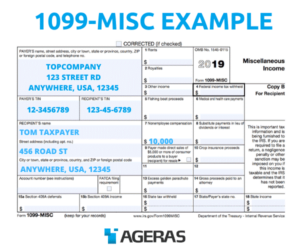
It’s not just two or three. That was a part of my when I put that plan together, there was a plan to make sure that I had the people in place. I had the people that I worked with consistently. And we also do internships, and I teach them personally.
And I myself, I like to stay sharp on this business because it is one of those things…at the end of the day, it all falls on you. You have to recognize what level is your company at. I would love to say that we’re a Fortune 500 or even close to that, but we’re not. So, with that being said, even though I am the person running the show, I have to also stay relevant in terms of knowledge and what’s happening with my industry, because if I have to roll up my sleeves and get out and do what I need to do, we have to make it happen for our client.
Getting back to the business infrastructure…Forrest mentioned reducing the overhead associated with physical office space and opting for shared office space instead. Regarding the people element, he reduced overhead by converting employees into independent contractors. I wanted to know how he manages that list of independent
contractors.
We just have a list. There’s not a specific software that I use for them. But there’s a list of people who have completed our training, and they’re just on that list. And whenever there’s a job, it goes out to that list.
And that’s how we’ve been able to successfully do that now for ten years and we have not missed a beat. When going down this path, one of the things that I implemented was customer service, which was going to be our biggest thing, even with contractors we received the Better Business Bureau’s Torch Award for customer service. And that really spoke to the training and the system that I think that we had in place. The people that are working with our company, believe in what we’re doing.
They believe in the process and how we go about doing it. And it’s reflected in what our customers have had to say about the people who represent One Vision Productions when we’re working.
That’s amazing. So, I’m sure there are several lessons that you’ve learned as a result of going through this exercise. Can you share what some of those lessons have been?
Yes. Number one, something will go wrong! I don’t care how much you plan it’s itemized. The five-year plan is laid out.
Two years, three years, something will go wrong. Be flexible and actually plan for mistakes. A lot of people don’t actually tell you to do that, but I believe that planning for something to go wrong, and different case scenarios can help you better be prepared. What is your contingency if no one else can come do the job? How will you handle that?
And you create these what-if moments, which actually it’s almost like going into battle knowing, Okay, if this goes wrong, I have this opportunity, this alternative method. Now, it doesn’t always work, or it may not always happen, but I think being prepared is one of the biggest things I can say for any entrepreneur. Don’t go in thinking everything is going to just go perfectly and it’s just going to be wonderful. There will be issues,
And Forrest is right. It’s like Murphy’s Law states, “If something can go wrong, it will.” The Failure Mode and Effects Analysis, also known as an FMEA, is a tool for identifying risks and developing contingency planning. It’s also a good idea to have a Disaster Recovery and Business Continuity plan as well. Pay attention as Forrest talks about a particular resource that’s helped him scale his business.
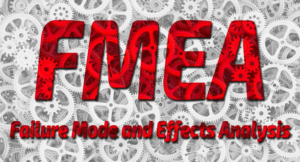
Find resources to help you with what you’re doing.
For instance, the Small Business Administration. They’re a great resource for anything. And also, an organization called SCORE. SCORE. It was designed as an organization of retired executives who wanted to give back to the business community.
Now it’s grown. There are working professionals, retired professionals, and people from all different professions who can actually help you with your business as it moves, grows, and changes.
In fact, Forrest had such a great experience with SCORE, that he decided to become one of their mentors.
The great thing about SCORE is it is a resource to help entrepreneurs or small business owners. The demographic has changed with the landscape. Now you have more minority business owners, more women business owners for that matter, and just a lot more nontraditional ways of starting a business. Well, that’s one of the things that I shared with them coming on.
I said I wasn’t a CEO, or executive of a corporation when starting my business. When I started the business, I was a CEO and a janitor. So, there are going to be a lot of people that need to understand that process coming in and that it’s not going to just be, Hey, we have a budget to do this, we have a budget to do that. But they have to understand that there’s going to be a process and how to get that business plan together.
SCORE has begun to embrace the change in the business culture. So now more of the mentors reflect the people that you see every day. We have more women mentors and I like to say we also have a new mentor in you. Thank you very much.
So, all this expertise is now available because a lot of times people do want to sit across from someone that looks like them. SCORE is just making sure that they try to bridge that gap between the professional world and those who are looking to start a business.
And SCORE is just one resource of many that Forrest has to share. Coming up after the break he’ll tell us about those additional resources and how you can reach out to him for support, even if you aren’t based in the U.S.
In the world of business, success isn’t just about great ideas or products. It’s about having a strong foundation—a solid business infrastructure. But why is it so important?
A robust business infrastructure is like the backbone of an organization. It provides the necessary support for all our operations.
Business infrastructure ensures effective communication and collaboration. It allows teams to seamlessly share information, work together efficiently, and make informed decisions.
It also enables efficient data management. With proper systems in place, businesses can securely store, analyze, and utilize their data to gain valuable insights and make strategic decisions.
Thirdly, a strong business infrastructure promotes innovation and growth. It provides the flexibility to scale up operations, adopt new technologies, and adapt to changing market demands. It’s no wonder why a solid business infrastructure is essential for success. It enhances communication, facilitates efficient data management, fosters innovation, and enables flexibility—all vital for businesses to thrive in today’s competitive landscape. Invest in a strong business infrastructure, and watch your business reach new heights!
At Equilibria, we’re excited to offer a free webinar opportunity where we’ll do a deep dive into business infrastructure. Stop being a victim of unmanageable fast growth and start building your own company’s business infrastructure. Don’t wait! Experience the order and calm that thousands of other small businesses have. Sign up now at SmoothOperator.Club. That’s SmoothOperator.club.
Thanks for coming back. Before the break, filmpreneur Forrest Tuff taught us some of the core principles behind the One Vision Productions Way – a philosophy that has helped him trim expenses in some areas and invest in others to achieve greater revenue and profitability. He’s also a SCORE mentor and before he shares more resources with us he has one more thing he wants to say about SCORE, which stands for the Service Core
of Retired Executives. Here’s Forrest.
The great thing about SCORE is it’s actually free. So as a business owner, this is a great way to reduce money going out. You actually have a service that’s a resource partner with the Small Business Administration that will offer you free business advice.

They will take a look at what you have, and they can tell you how to best make changes that could be beneficial to the sustainability of your business.
Here’s something else you need to know about Forrest – he’s a seasoned public speaker and multiple award-winning Toastmasters. He’s also an avid reader. In fact, there are 3 books he recommends we read.

One, I think with most businesses, there is a portion where you have to understand sales. And there’s a book that I read by Steve Gold. It was called Sales: Easily Sell Anything to Anyone and Achieve Sales Excellence in Seven Simple Steps. Now, the reason I think this is important is because no matter what product you have, someone has to buy it.
And not everyone buys your product just because it’s great or looks nice. Sometimes you have to sell that product. One of the ways to reduce overhead is to increase revenue. So, with that, find a way to close deals.

Secondly, Run Your Business Like a Fortune 100 by Rosalie Loeber, Ph.D. In this book, it goes over ways to actually assess your business, whether it’s a small business or a Fortune 100 to find ways to reduce overhead and increase your profitability.

And the last book that I’ll share with you is called Blue Ocean Strategy. I was introduced to this by a really great SCORE mentor of mine. It’s by W Chan Kim and Renee Marborne. Now, simplistically, this is, in a nutshell, what the blue ocean strategy is.
Let’s say that in the water, all the sharks are on one side of the water and they’re fighting. So, there’s blood. It’s red because they’re all fighting over the same thing. But over here is the blue ocean. In that blue ocean, it’s territory that’s untapped.
So, this book focuses on looking at your market and finding a way to create your blue ocean or create something that’s untapped. And I’ll give an example. Do you remember how the circus was perceived, Alicia of the original circus?
Oh, the original circus.
This is going way back in the day, sitting under a tent, looking at the poor animals, the elephants, I remember seeing the tightrope, and lots of acrobats.
Right? And it was probably $5, $10 a ticket to get in.
Yes, it was really cheap.
And now here comes Cirque de Soleil. An experience. Tickets may be $100. They created something that already existed, but they created a different experience.
They found a blue ocean. Short number of years, they were able to make the same amount of money in half the time as a Ringling Brothers or something like that. So that’s an example of what a blue ocean is. That book can help you unlock that mindset to find out how to begin to look for a blue ocean in what you do.
As Forrest and his team pondered what their Blue Ocean looked like, it led them to seek new types of clients and projects. He also made sure they had the remaining elements of business infrastructure – processes and tools – to support it.
Yes. And how that happened didn’t just come from changing locations. It came from us proactively looking for new ways of new markets to penetrate. When we first started out, it was just residential. We did a lot of personal parties, and then we got into corporate video. From there, we expanded into working with the government.
Once we got all the paperwork, we learned how to work with the government. We now had three different revenues. Then the film industry came along. So now we got involved in the film industry. So now we have five, or six revenues including photography and graphic design, and different ways to create revenue within our company.
And that is what, over time, helped to increase the profitability because a lot of times they interchange. And I can give you a small example. A couple of years ago, we won a contract with the US Department of Justice well, in working with them, we were able to take that project and it turned into a film.
The film ended up having national distribution to every U.S. Attorney’s office in the country. Arthur M. Blank Foundation donated thousands of dollars to the project.
So, we were able to cross-pollinate the different platforms that we were working on and create something. That was kind of an example of me creating a blue ocean, in a sense. I created a platform that didn’t exist. The US Department of Justice said, “Hey, we’ve never done a film before, but now they have.”
That must be a great feeling – to know that you helped your client achieve something they didn’t think was possible. It’s always a pleasure talking to Forrest and know this – just because he’s busy he will always take time to impart wisdom and share resources. It’s just who he is. Even when I see him as we walk past each other in the park that joins our neighborhoods, he always shares some information with me. Sadly, our time with him on this interview has come to an end but I must thank Forrest and let him know how much we treasure him.
Thank you for having me, Alicia. My pleasure.

Let’s give it up for Forrest Tuff! Before he left, he did want me to share his phone number with you. It’s +1 678-754-2882. We’ll have this information, the link to his company’s website, as well as a link to our free Business Immunity kit at BusinessInfrastructure.TV. That Business Immunity kit includes an FMEA template you heard about earlier.
Again, you can quickly access all of this at BusinessInfrastructure.TV.
Thank you for listening! If you enjoyed this episode, then please subscribe and leave a five-star rating and review.

Well, once again, it’s time for us to leave the vault. But make sure you come back to hear the next remastered episode. It’s almost an extension of Forrest’s work in film. The next episode features an event planner in California who has a knack for bringing films to life through her events.
Until then, remember to stay focused and be encouraged. This entrepreneurial journey is a marathon and not a sprint.
This podcast was written, produced, and narrated by me, Alicia Butler Pierre. Audio editing by Olanrewaju Adeyemo. The original score and sound design by Sabor! Music Enterprises.
This is the Business Infrastructure – Curing Back-Office Blues podcast.


